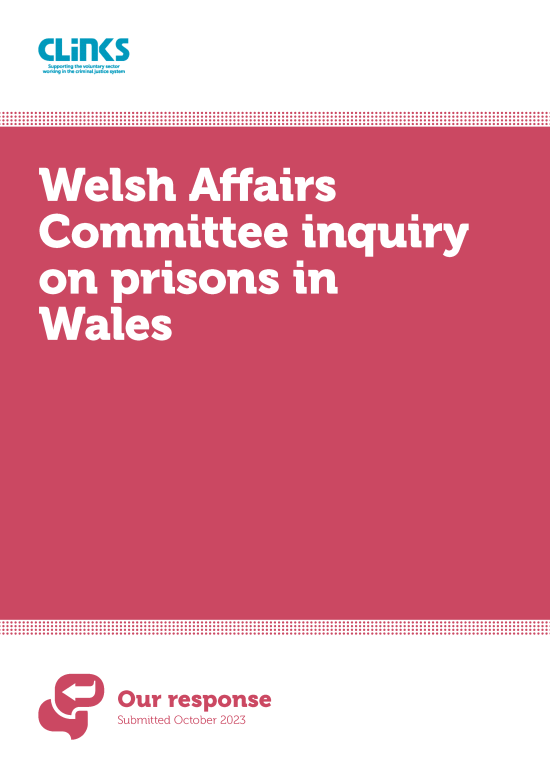
Welsh Affairs Committee inquiry on prisons in Wales
Clinks provided a response to the Welsh Affairs Committee inquiry on prisons in Wales.
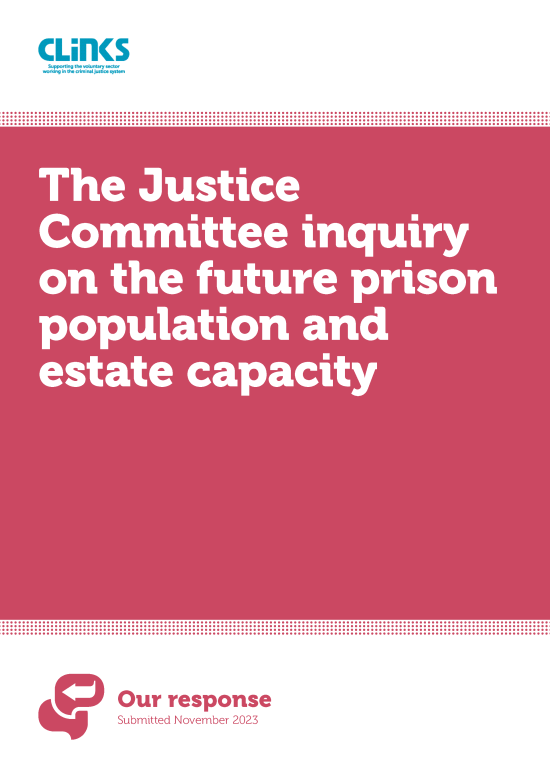
The Justice Committee inquiry on the future prison population and estate capacity
Clinks provided a response to the Justice Committee inquiry on future of prison population and estate capacity.
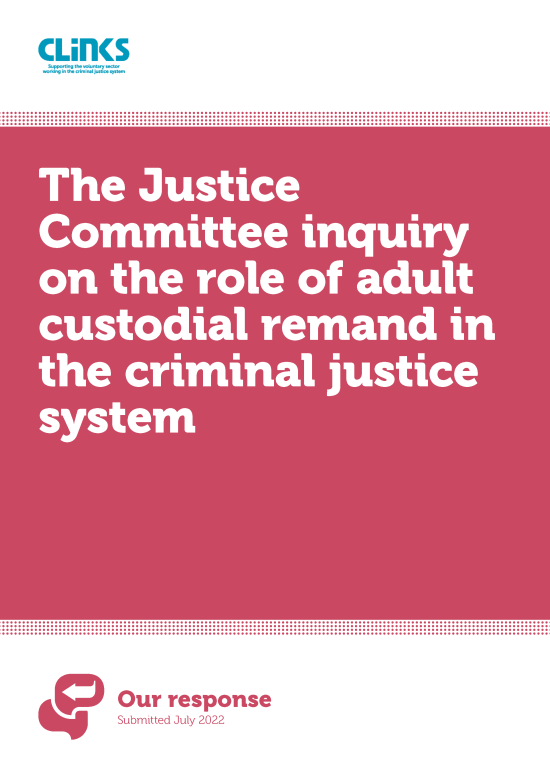
Clinks response: The Justice Committee inquiry on the role of adult custodial remand in the criminal justice system
Clinks submitted a response to the Justice Committee's inquiry on the role of adult custodial remand in the criminal justice system.
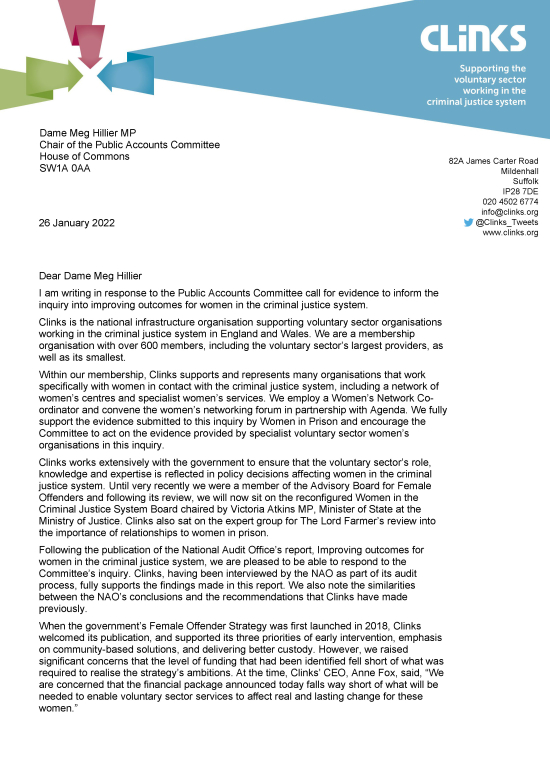
Letter to the Public Accounts Committee
Response to call for evidence to inform the inquiry into improving outcomes for women in the criminal justice system
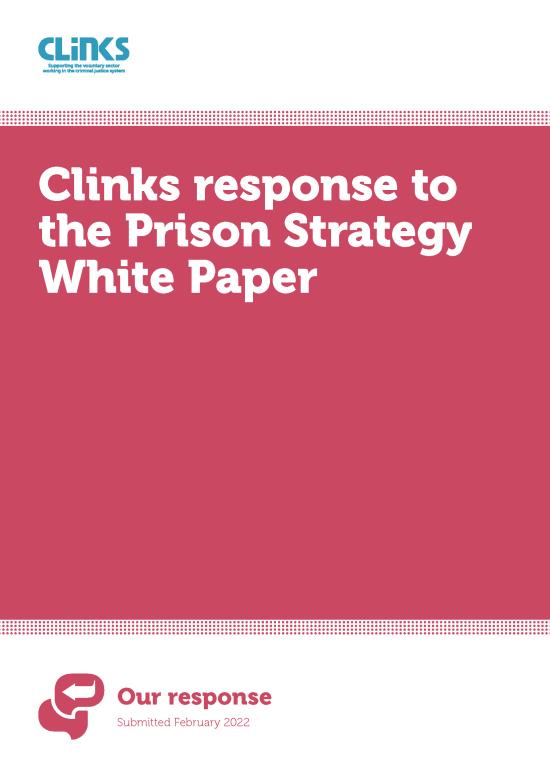
Clinks response to the Prison Strategy White Paper
Clinks has responded to the consultation questions as set out in the Prison Strategy White Paper and welcomes the opportunity to inform future policy in this area.
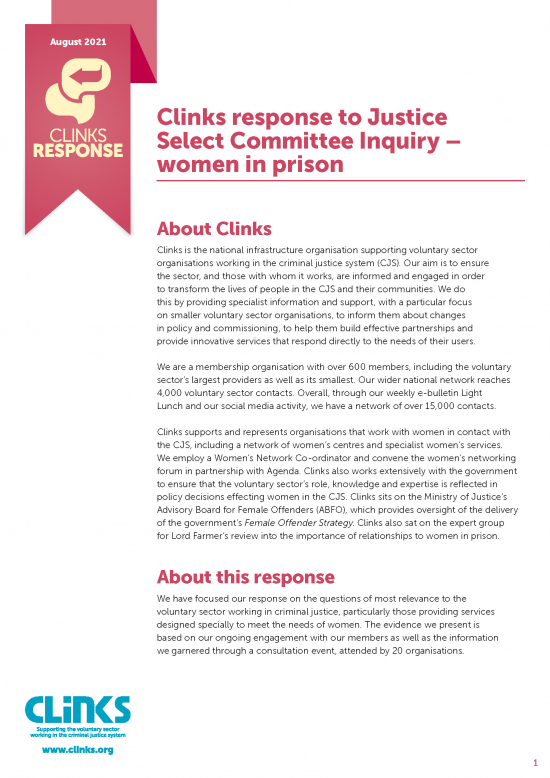
Clinks response to Justice Select Committee Inquiry – women in prison
Clinks submitted a response to the Justice Select Committee’s Inquiry into women in prison.